
24/7 EMERGENCY VET CARE
Our emergency team is available 24 hours a day, 365 days a year in Colorado Springs. Walk-ins welcome.

We Offer Flexible Payment Options
to Help Fit Your Budget


Emergency & Critical Care for Pets — North Springs VRC
Expert care for your pet when every second counts.
At North Springs Veterinary Referral Center, our dedicated team of specialists provides comprehensive emergency and critical care for your beloved pets. Whether it’s a sudden accident, a serious illness, or a life-threatening situation, we are here with the skills, technology, and compassion your pet deserves.
We offer state-of-the-art diagnostics, advanced treatments, and continuous monitoring, ensuring your pet receives the highest level of care during urgent situations.
Flexible Payment Options:


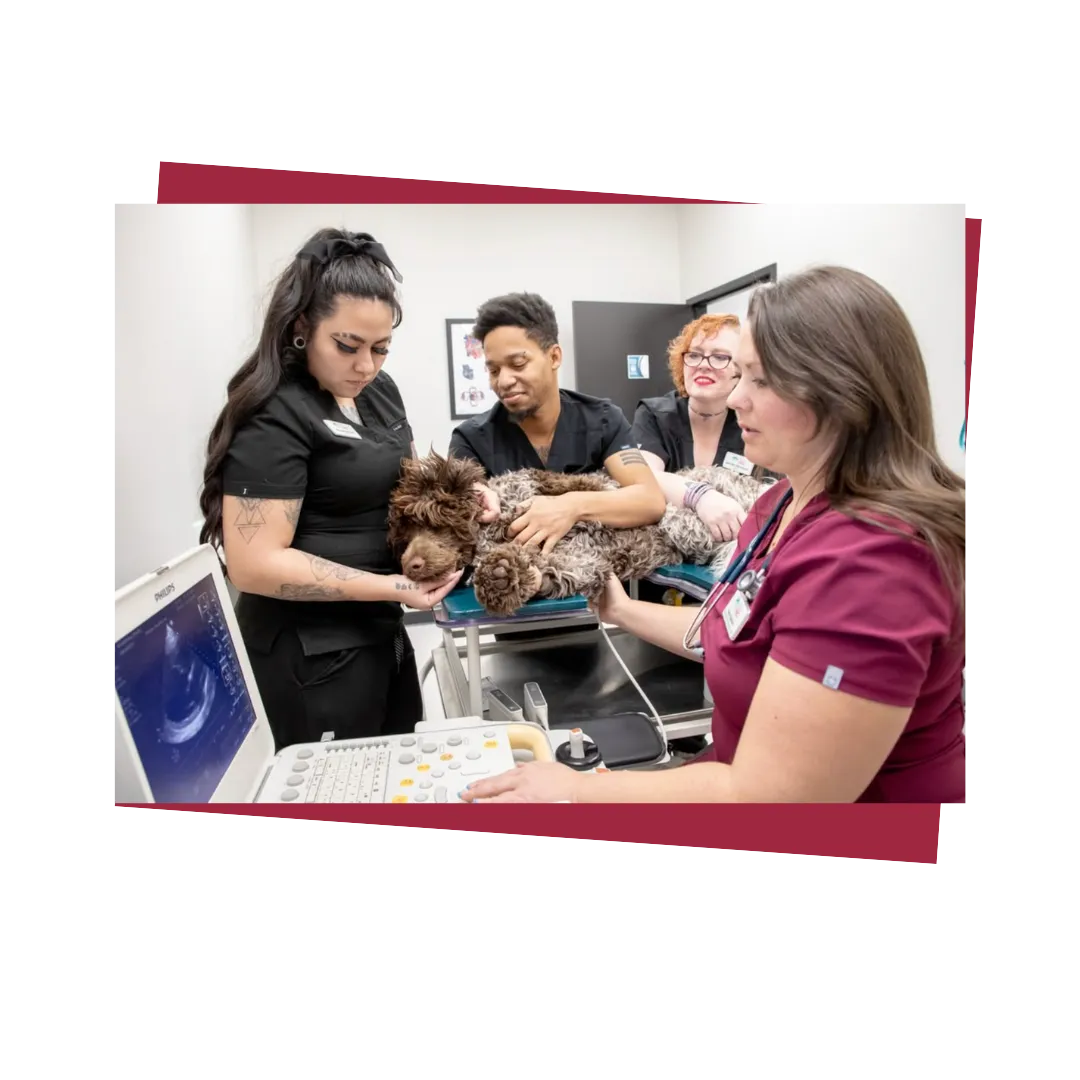

Recognizing Pet Emergencies: When to Seek Urgent Care For Your Pet
We strongly advise seeking emergency vet services for your pet when faced with severe symptoms, life-threatening injuries, or critical health concerns. Below is a list of common reasons to take your dog or cat to an emergency vet clinic:
Neurologic changes
Adverse drug reactions
Bleeding
Bloated or swollen/distended abdomen
Broken bones
Cardiac arrest
Changes in gum color
Collapsing, fainting, or unconsciousness
Complications from disease
Blood in urine
Wounds
Difficulty breathing, severe coughing, or choking
Eye injury
Hives and facial swelling
Inability or unwillingness to eat
Inability to pass urine or feces
Intense or ongoing diarrhea or vomiting, especially with blood
Injury from traumatic accidents or animal attacks
Intoxication or accidental ingestion
Labor complications or difficult delivery
Obvious signs of pain or extreme anxiety
Paralysis or loss of movement
Persistent retching
Post-op incision complications
Seizures
Snake bites
Weakness or lethargy
Heat stroke or heat exhaustion
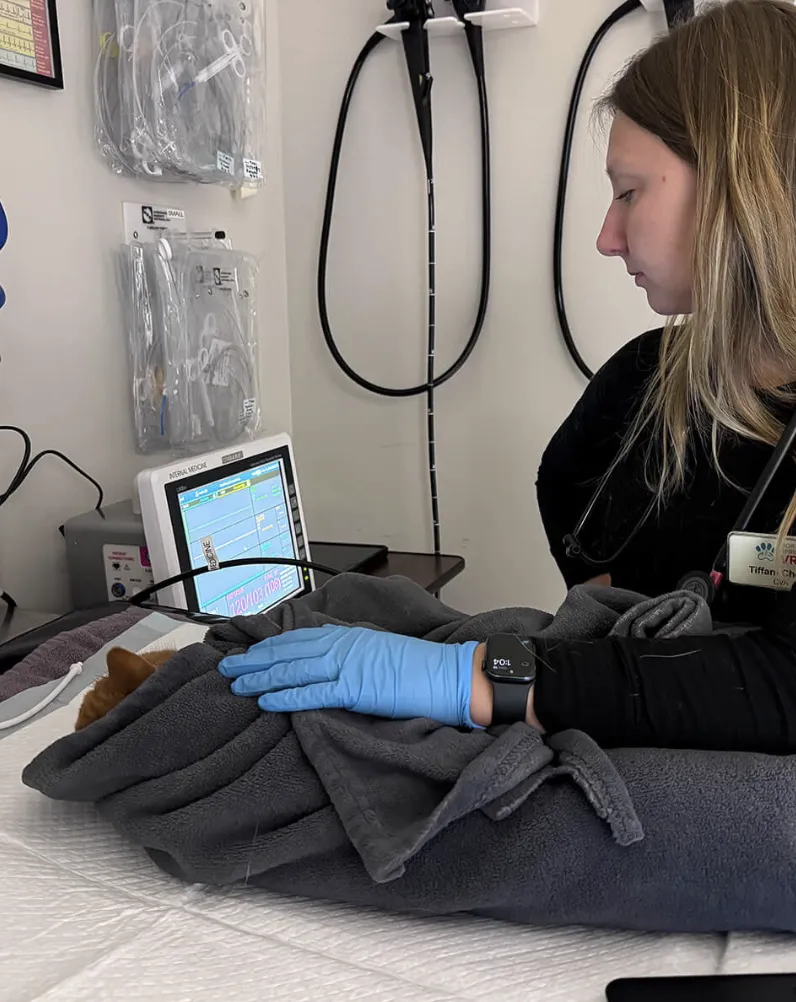
Need Immediate Help for Your Pet? Call Our Urgent Care Hotline!
When your pet's health can't wait, our Urgent Care Hotline is here to guide you. At North Springs VRC, we offer you direct access to veterinary professionals who can quickly assess your pet's situation and advise you on the next steps. Whether it's a minor concern or a potential emergency, you don't have to face it alone.
Call Now 719-920-4430
Our experts are ready to provide the support you need to navigate your pet's urgent health concerns, ensuring your peace of mind and your pet's well-being. With North Springs VRC, a dedicated team, you can make informed decisions about whether to seek immediate treatment or care at home. Experience the North Springs VRC, difference—compassionate care at the critical moment your pet needs it most.
What to Expect During an Emergency Vet Visit
After bringing your pet for an urgent or drop-off emergency appointment, they will be taken through 4 main steps:
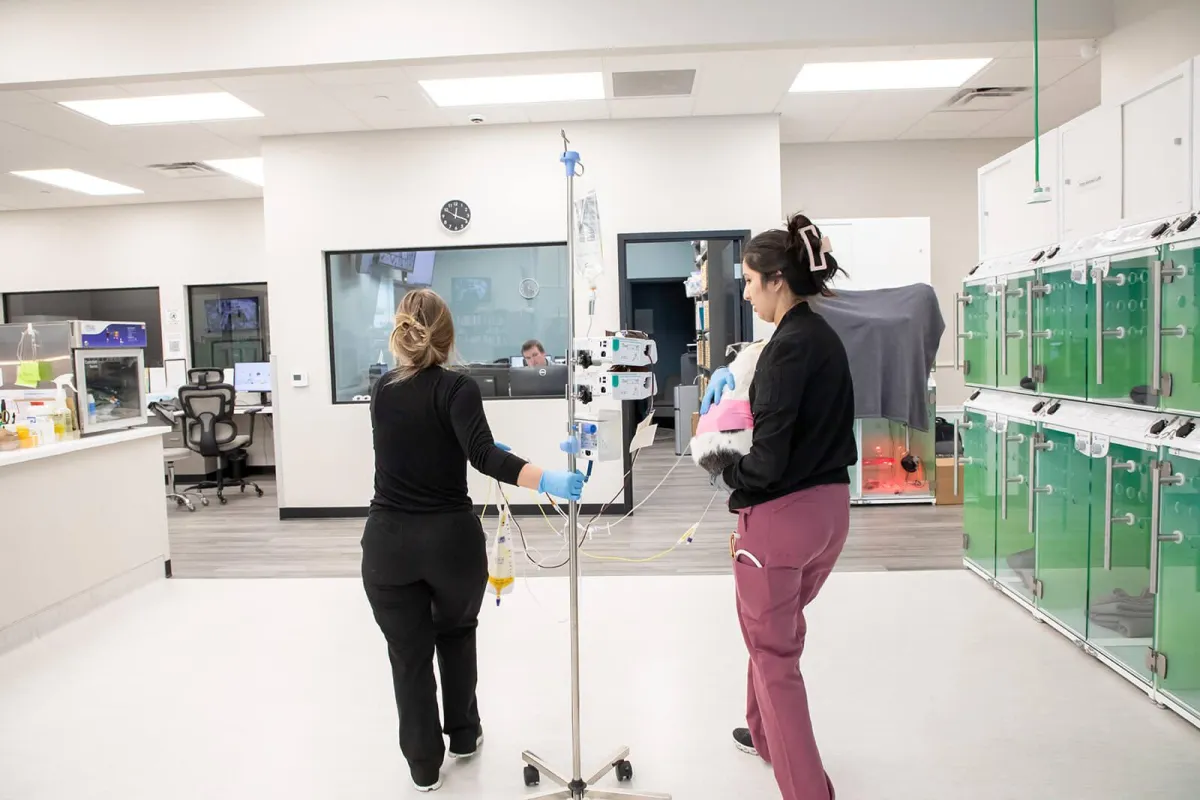
Immediate Triage:
When you arrive at North Springs VRC, every second counts. Our front desk team immediately notifies our medical staff while you check in, ensuring your pet is seen without delay. A trained veterinary technician performs a rapid triage, quickly assessing your pet’s condition to determine how urgently they need care. If your pet is in a critical state, they are taken straight to our treatment area for immediate stabilization — no waiting, no unnecessary delays — while we gather the essential information from you.
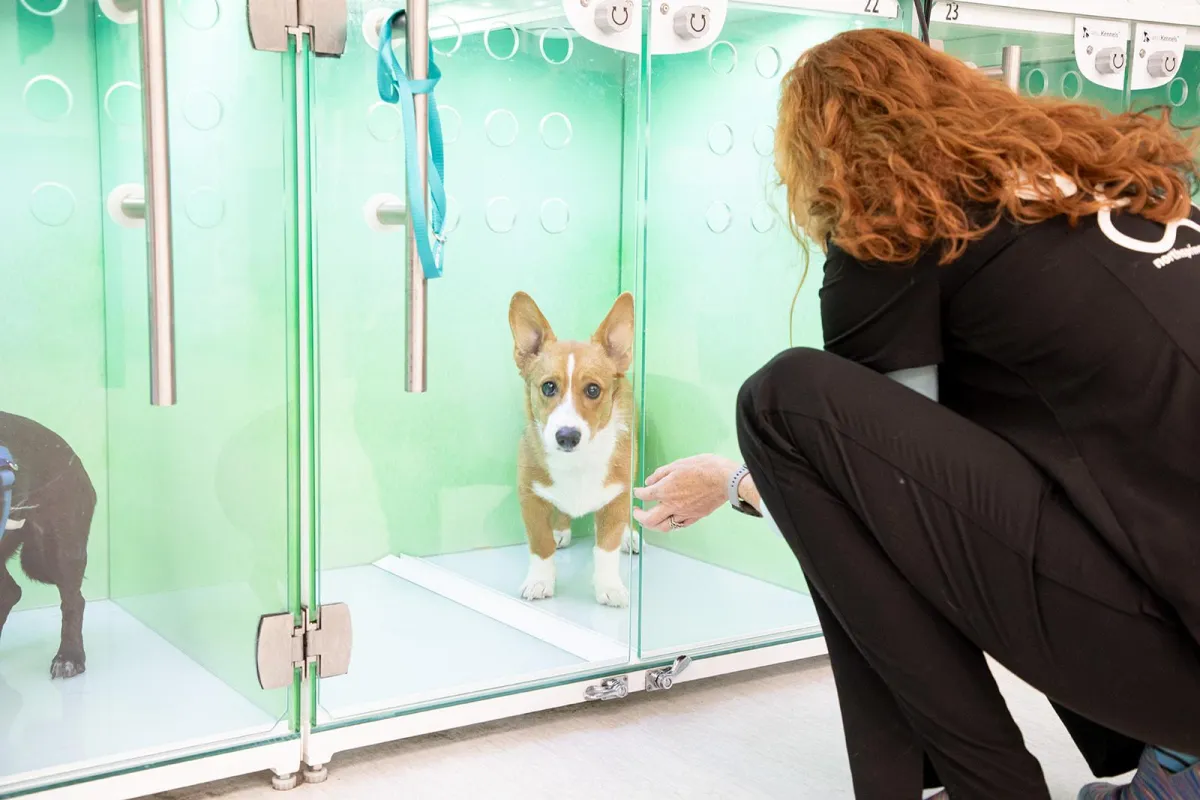
Diagnostics & Stabilization:
Our first priority is to make your pet stable and as comfortable as possible. This may include providing oxygen support, controlling pain, stopping bleeding, or addressing shock, depending on the emergency. We work swiftly but gently, using Fear Free handling techniques whenever possible to minimize stress for your pet. In these moments, our team focuses on combining medical expertise with compassion, ensuring your pet feels safe and supported during a very stressful time.
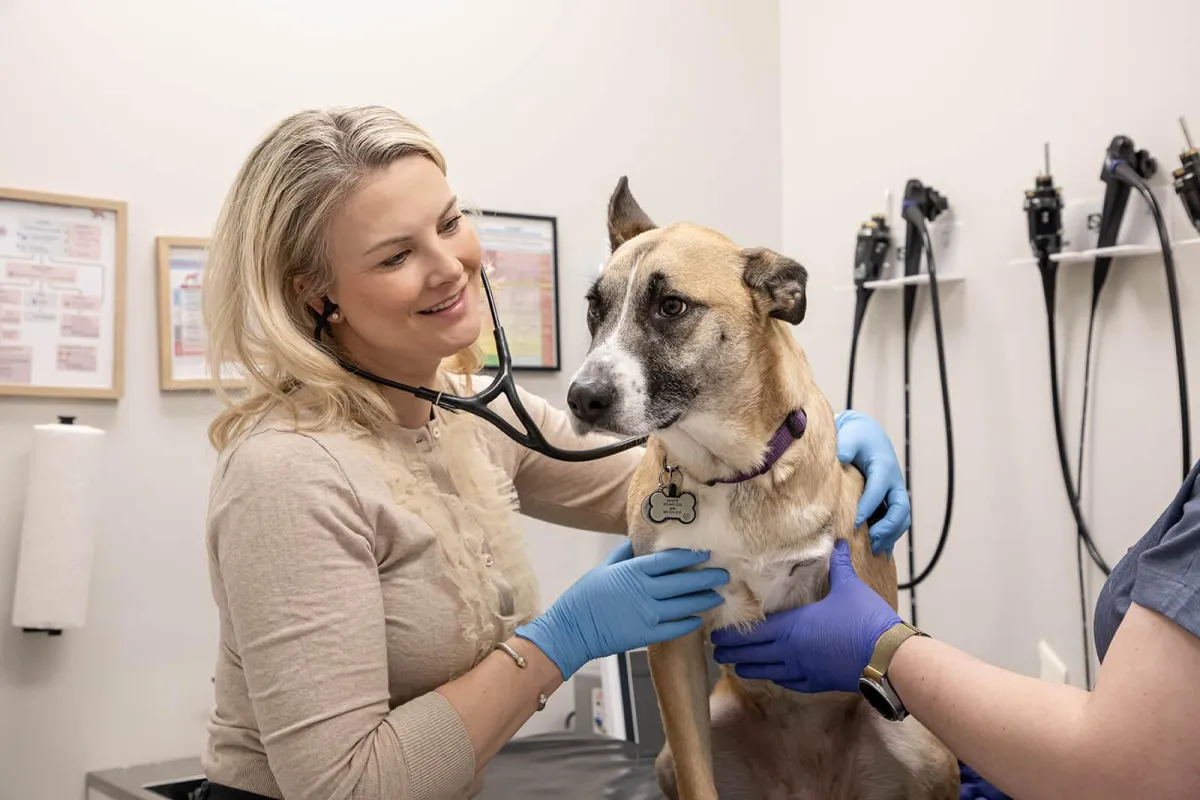
Treatment Plan:
After we have a clear picture of your pet’s condition, we take the time to sit down with you and explain our findings in plain, compassionate language. You’ll receive a personalized treatment plan, including all available options, their potential benefits, risks, and costs. We provide upfront estimates so there are no surprises, and we guide you through payment solutions if needed. Most importantly, you’re an active part of the decision-making process — our goal is to help you make informed choices with confidence.
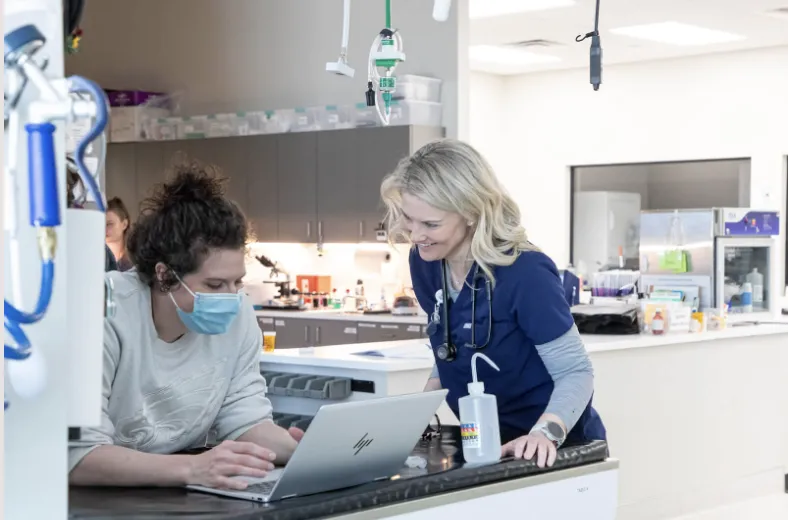
Continuous Updates:
If your pet requires continued hospitalization, they’ll be admitted to our intensive care unit (ICU), where they receive 24/7 monitoring and care from our highly trained team. We’ll keep you updated with regular progress reports and coordinate with your primary vet for smooth follow-up care.
📹 You'll also have secure access to a live-stream recovery camera, so you can check in on your pet anytime during their stay.
Our Testimonials
Pet Emergency? Here’s How to Prepare Before You Arrive
f your pet is experiencing an emergency, please call us immediately as you head to the clinic. This allows our team to prepare for your arrival and provide the fastest care possible. Bringing a few key items — such as recent medical records, a list of current medications, and insurance or payment information — can also help us treat your pet more efficiently:
Photos or videos of symptoms — helpful for our team to see any sudden behaviors or signs you’ve noticed at home.
Packaging or wrappers of anything ingested — crucial if your pet may have eaten something toxic or foreign, as it helps us quickly identify the substance and start the right treatment.
Any previous medical records or test results – These help our emergency team quickly understand your pet’s health history and guide the treatment plan.
A list of current medications – Include names, dosages, and frequency if possible.
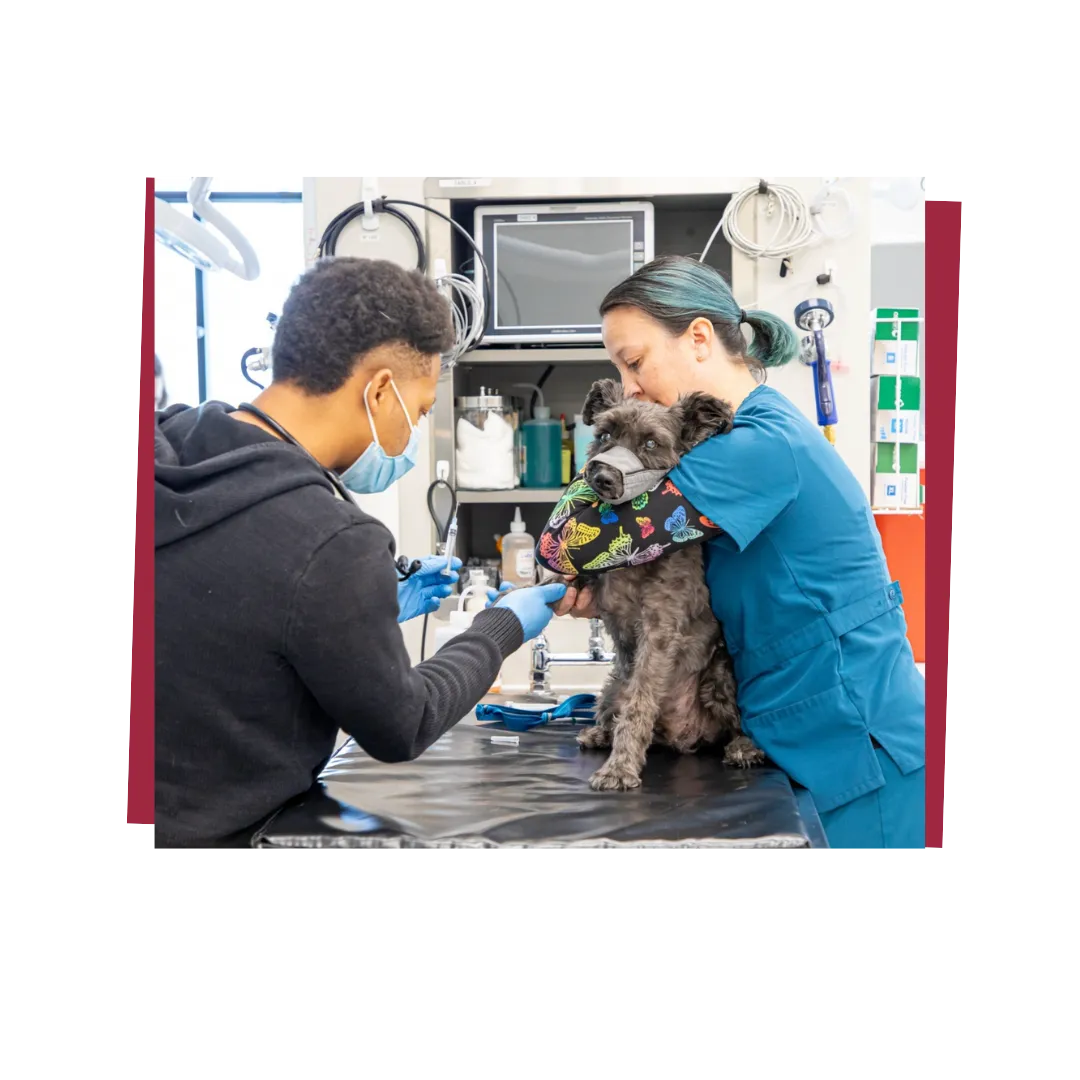
NEED EMERGENCY GUIDANCE, RIGHT NOW?
It’s not always easy to tell when a symptom, injury, or sudden behavior change means your pet needs emergency care. That’s why we offer complimentary tele-triage support.
Call our dedicated triage line to share your concerns, and our team will walk you through the next steps — whether that means coming in immediately or monitoring your pet at home.
Call Us!

WHY CHOOSE NORTH SPRINGS VRC FOR EMERGENCY CARE
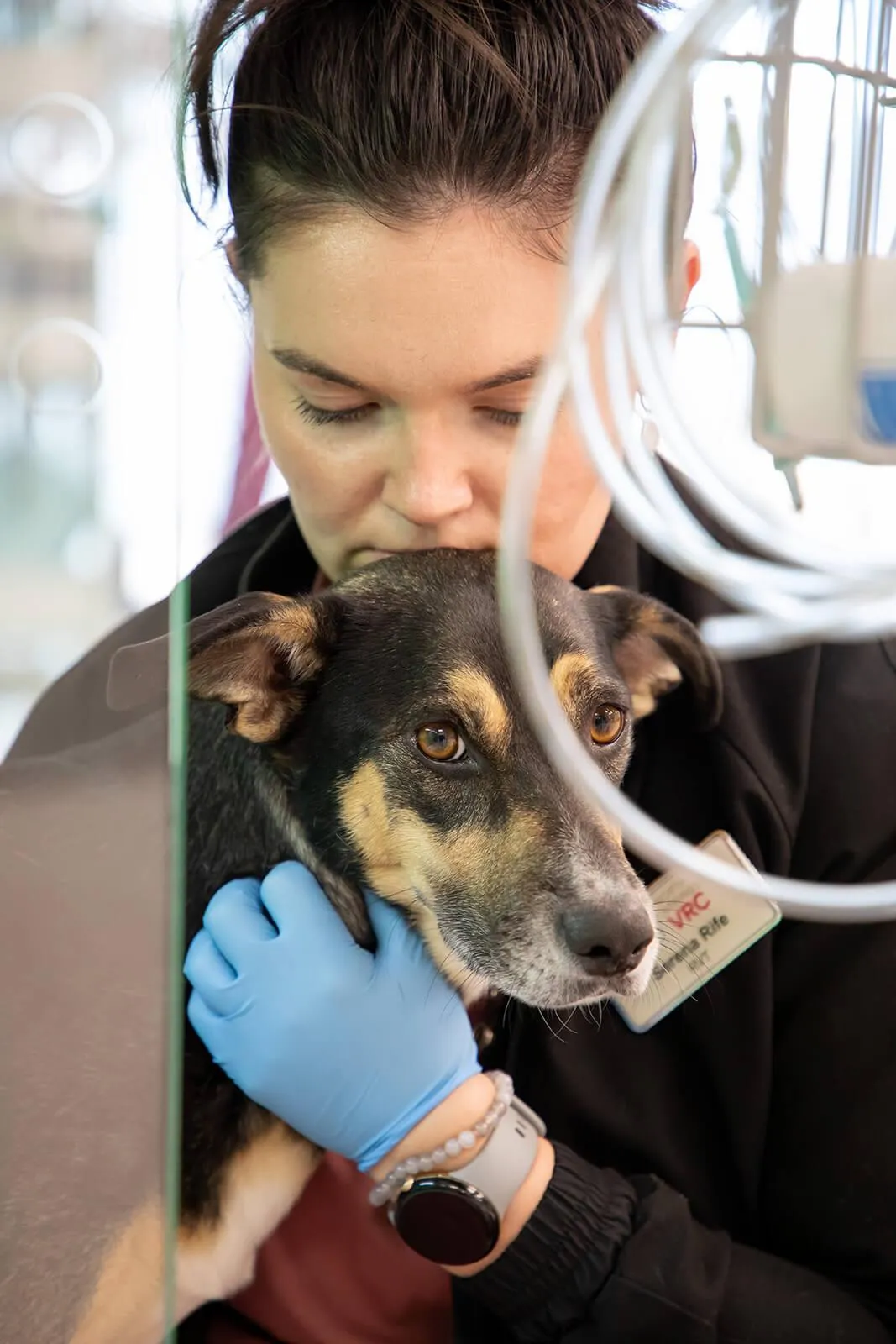
Comprehensive Care Under One Roof:
From emergency services to advanced specialty care, your pet’s critical needs are met in one trusted location. Our seamless collaboration with your primary vet ensures continuity of care, making sure every diagnosis, treatment, and follow-up is handled with precision and efficiency.
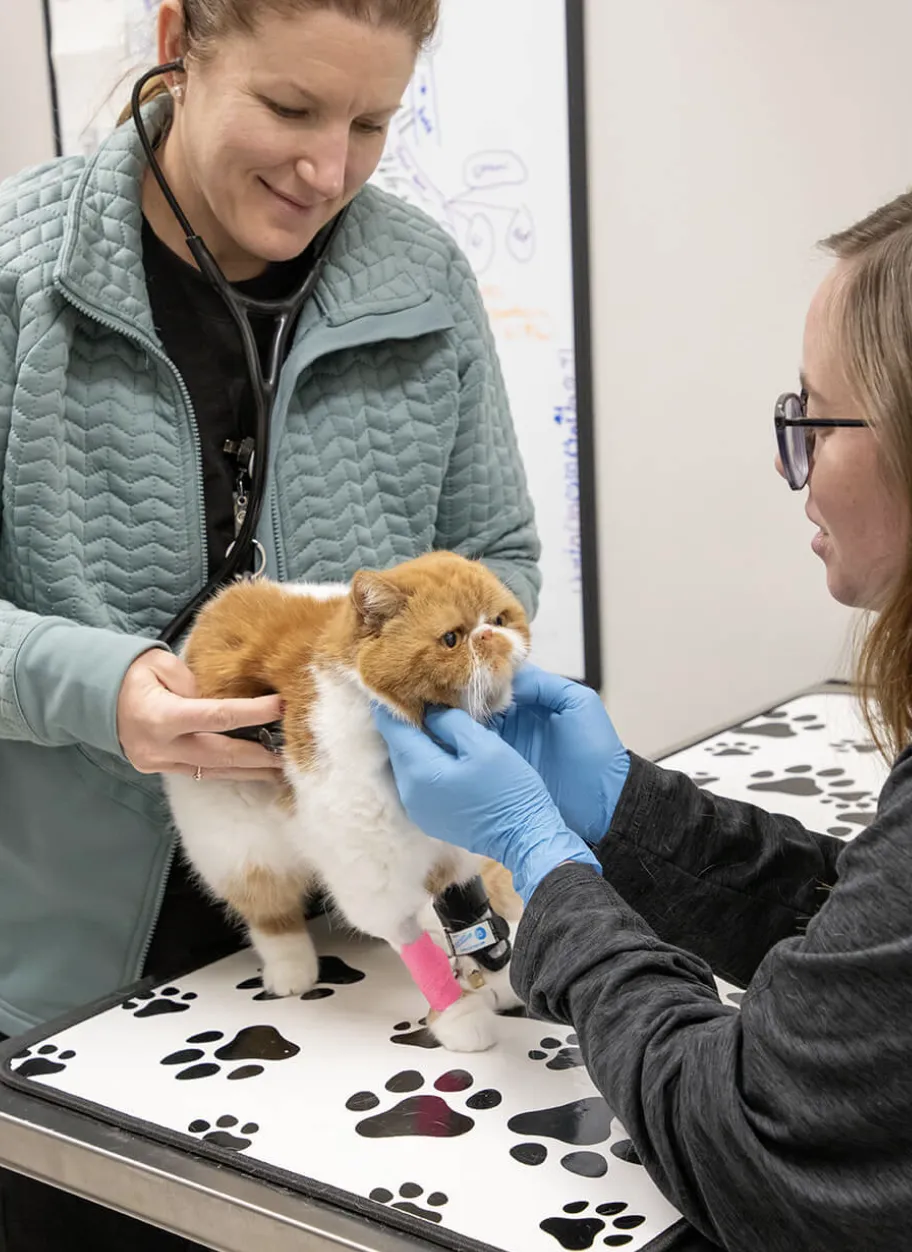
Advanced Veterinary Expertise:
We offer state-of-the-art diagnostics, innovative treatments, and access to board-certified specialists. Whether it’s surgery, internal medicine, or critical care, our expert team delivers the highest level of veterinary medicine to ensure your pet receives the care they deserve—when it matters most.
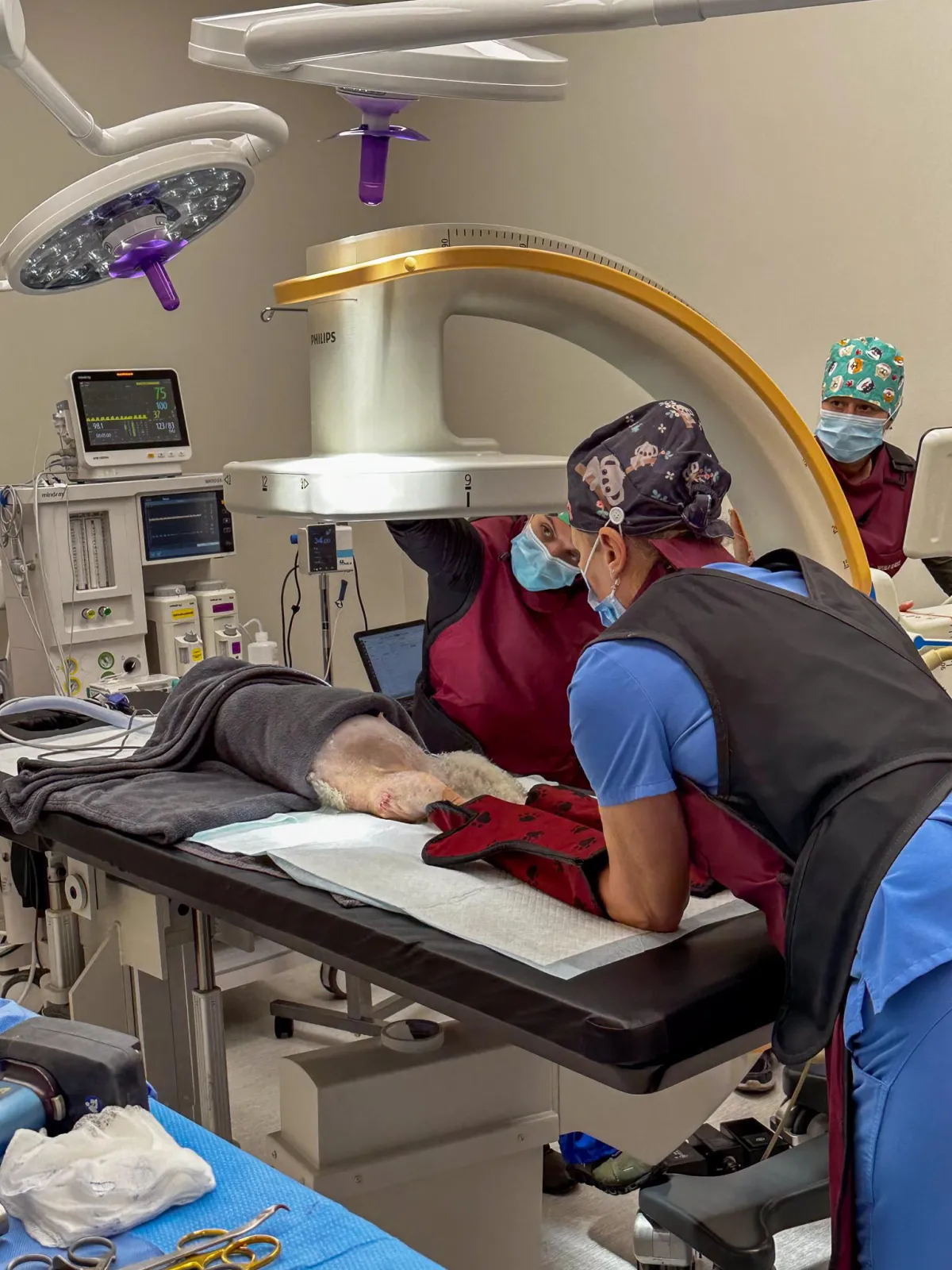
24/7 Emergency Support When It Counts:
Emergencies can happen at any time—and we’re always ready. Our emergency team is available 24/7 to deliver immediate, expert care for your pet, no appointment needed. Day or night, weekends or holidays, we’re here when you need us most.
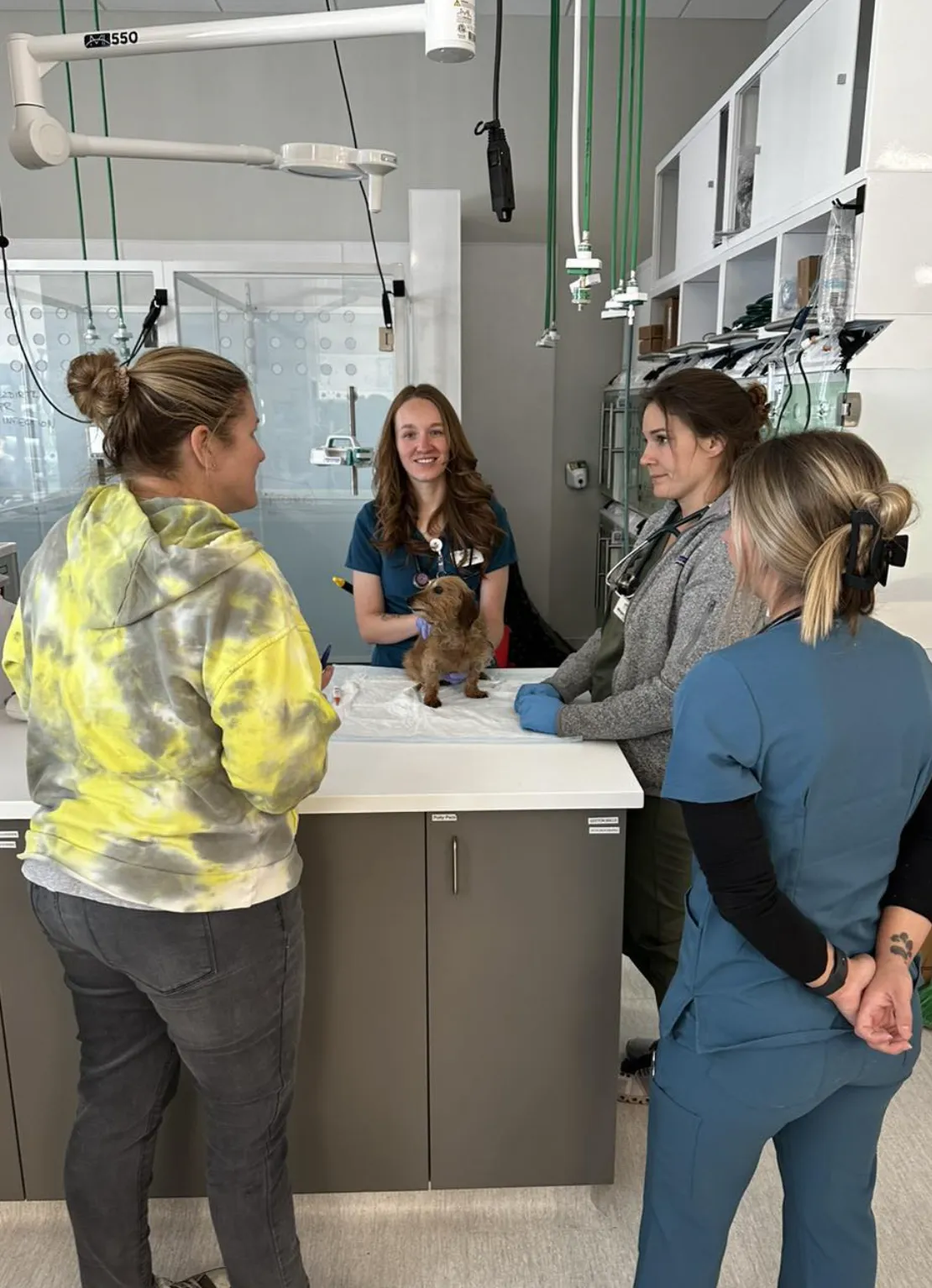
A Compassionate Experience for Pets & Families
We understand how stressful emergencies can be. That’s why we prioritize compassionate care, clear communication, and transparent pricing. From check-in to discharge, our team supports both pets and their families—offering comfort, clarity, and kindness every step of the way.
TOUR THE HOSPITAL
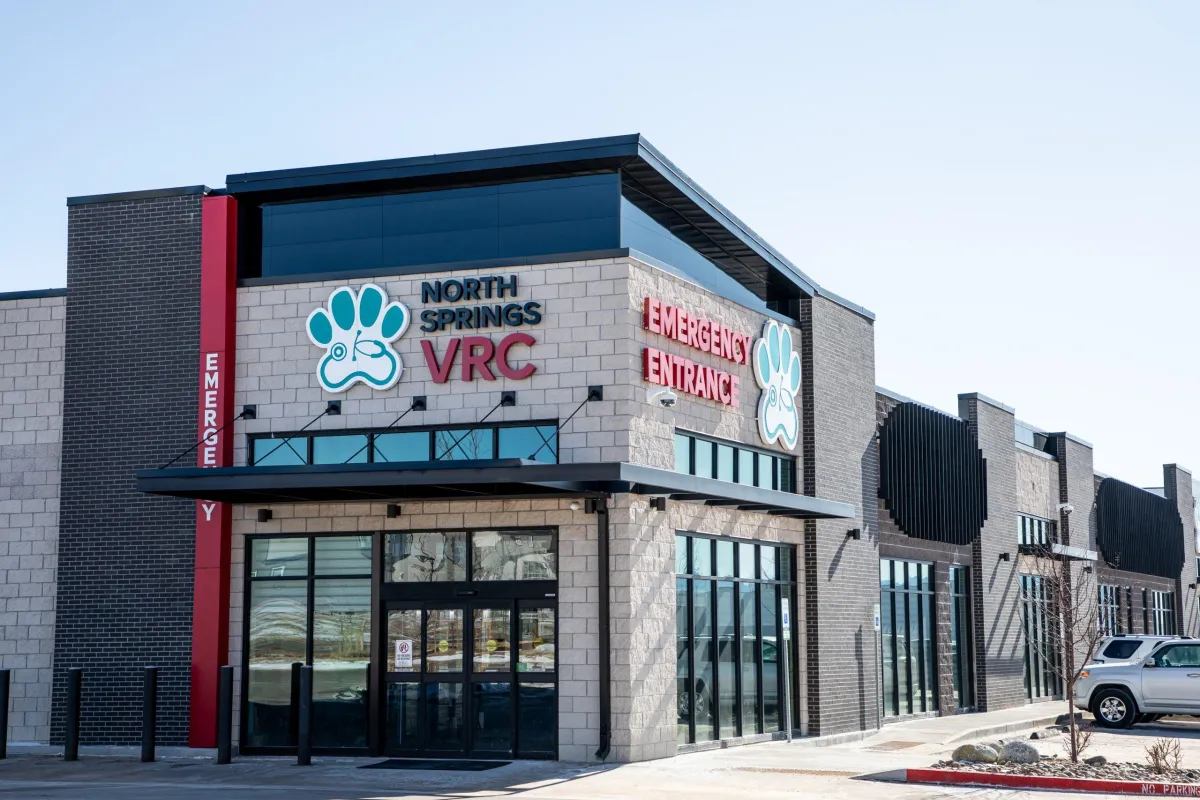
Emergency Department Tour
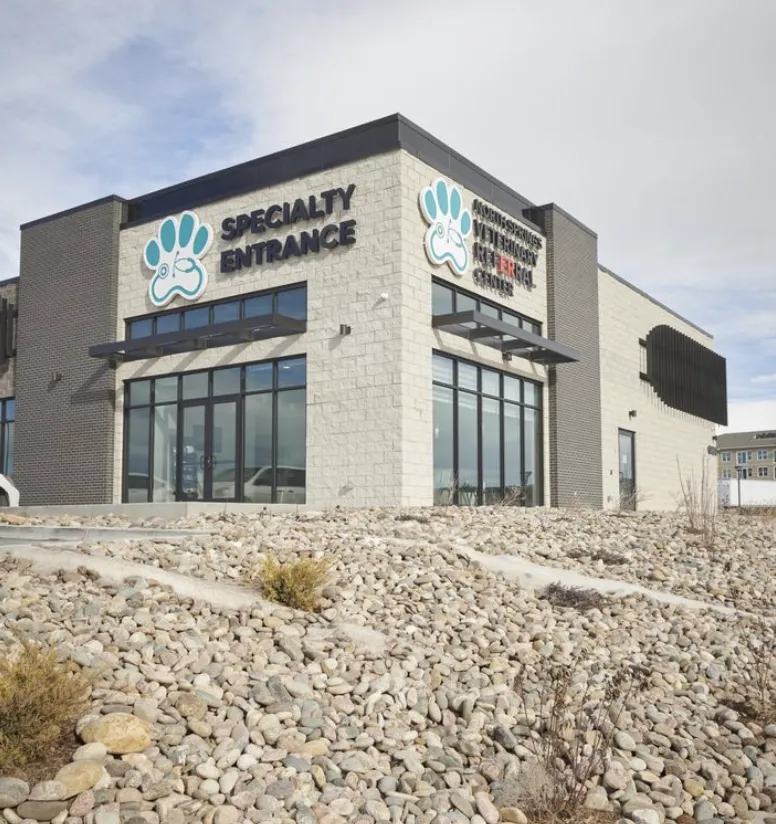
Specialty Services Tour
FREQUENTLY ASKED QUESTIONS
Do I need an appointment for emergency care?
No appointment is needed. Our emergency services are available 24/7 and we prioritize patients based on the severity of their condition.
What should I bring when coming in for an emergency?
If possible, please bring your pet’s medical records, a list of current medications, any packaging or items they may have ingested, and insurance/payment information. These help our team provide faster, more effective care.
How much does emergency care cost?
Costs vary based on your pet’s condition and the treatment required. We provide upfront estimates before proceeding with care and offer flexible payment options, including ScratchPay and support for pet insurance claims.
Will my regular veterinarian be updated about my pet’s visit?
Absolutely. We work closely with your primary care veterinarian, sharing diagnostics, treatment details, and follow-up recommendations to ensure your pet has a smooth continuum of care.
Can I visit my pet while they are hospitalized?
Yes, visiting is allowed during designated hours, as long as it does not interfere with medical care. Our staff will guide you on how and when visits can take place.
📹 Additionally, you’ll have secure access to our 24/7 recovery cameras, so you can check on your pet remotely at any time during their stay.

Got Questions?
We’re Here for You
Whether you’d like to learn more about next steps, first aid, or just to check if your pet needs to see us, feel free to call us!

Facebook
Instagram
Mail